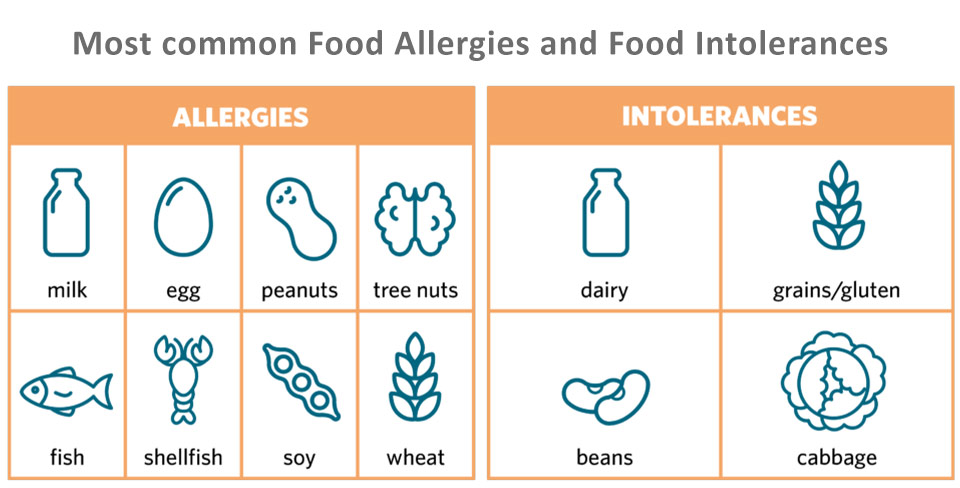Food intolerance
Food Intolerance
Food intolerance is a merely delayed detrimental reaction (say, indigestion) to a food substance – it may produces symptoms in one or more body organs and systems, but does not give an immediate violent reaction like true food allergy would.
Not an allergy
Food intolerance is not the same as having a food allergy. While food intolerance is the inability of the human digestive system to be able to digest certain foods, food allergies trigger the immune system and cause responses that can sometimes be seen externally such as swollen facial features. Symptoms of food intolerance take longer to show up than in the case of food allergies.

Causes and symptoms
There are several causes for food intolerance and why the body find it difficult to digest certain foods. Here are a few of the most common reasons.
- Chemicals in foods such as caffeinated drinks, chocolate, cheese and other similar foods have chemicals in them that irritate the digestive system.
- Natural toxins from foods such as beans can cause extremely unpleasant digestive problems and lead to diarrhoea and gas build-up.
- The absence of certain enzymes in the body such as those necessary for the breakdown of lactose from milk, can cause people to become lactose intolerant.
- Symptoms include but are not limited to, bloating, cough, runny nose, irritable bowel, migraines hives and feeling “under the weather”.

Diagnosis
In order to diagnose a food allergy, an allergist will review the patient’s history and the symptoms or reactions that have been noted after food ingestion and perform allergy tests if necessary.
Tests include skin prick tests, blood tests, and food challenges. In a skin prick test, a board covered in protruding needles with an allergen on them will lightly puncture an individual’s skin to see if a hive is produced. This test and blood tests only work for lgE antibody related reactions. A food challenge is a more direct method where a person is given a pill containing an allergen and watched for symptoms.
A diagnosis for food intolerance is made using medical history and cutaneous and serological tests to exclude other causes, but to obtain final confirmation a controlled food challenge must be performed where the patient is given the allergen and watched for symptoms. Other methods include hydrogen breath testing, which is used for lactose intolerance and fructose malabsorption, and professionally supervised elimination diets, where an individual must remove all poorly tolerated foods, or all foods containing offending compounds.
